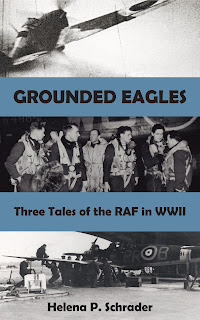Shakespeare famously put the question"What's in a name?" into the mouth of his heroine Juliette. She answered herself by noting correctly that a rose by any other name would "smell as sweet." Unfortunately, by another name it might not be found by a search engine. Which is another way of saying that while titles have always been important, in the age of online publishing, marketing and sales, titles have become more important than ever.
Titles must fulfill multiple functions. They must be descriptive, distinctive, attractive, and memorable. With so many demands, it is easy to overburden a title, yet the best titles are also concise. Take a look at the New York Times Best Seller Lists. Of the top five hard copy fiction books, not one title was longer than three words. Of the top five in hard and ebook combined, only one had a four-word title, and one of those four words was "the," all other titles were shorter.
So short is catchy, but with roughly 5,000 titles being released each day, "catchy" isn't really good enough any more. A book must also flag to readers (and search engines) enough about the content of a book to attract the kind of readers that will like it. The latter is vitally important because absolutely no book in the universe appeals to everyone.
For a start, readers want to know if they are looking at a fiction or non-fiction title. No one searching for an escapist read on their vacation wants to be confronted instead with a book full of dry statistics. No one needing facts for their master's thesis wants to discover they've bought a fantastical book of alternative history. Angry readers leave bad reviews, and that one mistaken sale which leads to a bad review can frighten away the very readers who would love a book.
But titles need to do more than define themselves as fact or fiction. They need to describe their content in a concise way. As a rule, authors of non-fiction rarely have difficulty finding a title that describes the content of their book. For example, “Accounting Fundamentals” or “American Gardening” are both good solid titles that tell the reader what the book is about. Such titles also work well for search engines because the key words that a reader would use to search for books about accounting or gardening are built directly into the title.
The problem for non-fiction writers is more
often coming up with a title that is distinctive and memorable. Without even looking it up, I’ll bet there
are a lot of books that are called something like “The Fundamentals of Accounting,” or
“Accounting Basics” or “Basic Accounting” etc. The same is true for gardening. To be notable,
therefore, non-fiction authors need to look for some means of spicing up their
titles, e.g. “Accounting for Dummies” or “Sexy Accounting,” for example. The
risk here is the author, who names his/her book “Sexy Accounting” and delivers
a very dry book will soon get bad reviews from disappointed readers. Alternatively,
a non-fiction author can try to make the topic more unique by being more
specific: “Granite Gardening on the Maine Coast,” for example, but the narrower the title, the fewer people it will appeal to.
An increasingly popular alternative to trying to find the perfect “catchy” but informative title is to use subtitles. That is to have a catchy title, and an informative sub-title. Unfortunately, distributors insist that the headline title be as precise and informative as possible. This produces rather long and cumbersome titles followed by catchy subtitles. For example, Christopher MacEvitt's brilliant title "Rough Tolerance" is buried under/behind the academic description "The Crusades and the Christian World of the East." Likewise, my own preferred title "Kingdoms at the Crossroads of Civilizations," was rejected by my publisher (to please the distributors) in favor of "The Holy Land in the Era of the Crusades." My title was relegated to the subtitle.
On the other hand, publishers can sometimes be persuaded to risk more distinctive titles if the descriptive title is too generic. For example, my book on the Berlin Airlift could not be called simply "The Berlin Airlift" because the title had been used scores of times already. Titling the book “The Blockade Breakers” gave it a unique identity, but on its own would have been insufficiently informative; there have been too many blockades in the course of history to tell a prospective reader what period of history and what part of the globe the book was about. The title became: “The Blockade Breakers: The Berlin Airlift.”
Fiction, of course, has totally different rules. Traditionally, the titles of fiction books needed to be catchy, intriguing, poetic, or evocative – but not necessarily informative. Nothing about “Gates of Fire” tells us this is a novel set in ancient Greece. Not being informative, however, is not the same as having nothing to do with the story inside. Anyone who reads “Gates of Fire” quickly learns that thermopyles means “hot gates” in Greek and understands that “Gates of Fire” refers to the battle at Thermopylae.
Yet, as with non-fiction, no novel will appeal to everyone. Readers of mysteries don't necessarily like historical fiction. Fans of fantasy may not be particularly attracted to action and military novels. Avid readers of romance probably don't devour science fiction. Even “literary” novels that allegedly have a universal appeal do not really appeal to readers who don’t like that kind of “literary junk.” This suggests that a title is more likely to succeed if it can flag something about at least its genre.Yet genre is not nearly enough. People looking online for a novel to read are most likely to type in
key words having to do with the kind of novel they want because if they just type in “novel” they’re going to get literally millions of hits. If they
type in “historical novel” the field might be reduced to just a couple 100,000
– but that’s still too many. If they type in “historical novel, WWII” the field
narrows again etc. etc. If an author wants to increase the probability of a title landing on the first page of a search, the title must place the book squarely in a searchable category. The term "lack of moral fibre," for example, was used exclusively by the RAF in WWII. By giving my novel about a young airman who is accused of cowardice during WWII the title "Lack of Moral Fibre," I signaled to readers both the content and the period.
But things aren't always that simple. I tried three different titles for my book on the German Resistance, for example. I started with "An Obsolete Honor" that rightly flagged the dilemma of an honorable man caught inside Nazi Germany, but the title does not hint at the period or place of the novel. I tried "Hitler's Demons" because by putting Hitler in the title, everyone knew the time period, but people also assumed that the hero was a Nazi as he was assumed to be one of Hitler's demons. In the end, I settled on "Traitors for the Sake of Humanity" -- which is more explicit about the content, but on it's own does not reveal the time period. I needed to add a subtitle to convey that, namely: "A Novel of the German Resistance to Hitler."
Which brings us to the subject of sub-titles and back (yet again) to search engines. The latter have fostered an exponential growth in the use of the former for novels. If nothing else, books often have “A Novel” as their subtitle, so readers know what they are getting.
The use of a more precise subtitle, on the other hand, enables an author to retain a catchy, non-specific title while still providing information. For example, the initial title for my novel on the Battle of Britain, "Chasing the Wind" was taken from the famous poem "High Flight" by John Magee, Jr. and I signaled the content with the precise subtitle: "A Novel of British and German Pilots in the Battle of Britain." However, I soon discovered that “Chasing the Wind” was too good a title, and the subtitle too long. Within just a couple of years of releasing my novel “Chasing the Wind,” it had been displaced on amazon by a half dozen other books with the same title but on topics ranging from sailing around the world to wind power. I needed a new title to move my title up in search engine results. My publisher and I came up with the title “Where Eagles Never Flew.” Nobody likes this title as much as “Chasing the Wind” but it evokes flying, is based on the same poem (“High Flight”) and with the more concise subtitle “A Battle of Britain Novel” is selling significantly better than its predecessor.
When I published my novels on Leonidas, I decided to give the key search engine phrase “Leonidas of Sparta” prominence as the title, and make the individual titles of the three part biographical novel the sub-titles. While somewhat awkward, sales suggest it was the right strategy, and my Greek publisher has also opted for putting Leonidas "front and center" in the Greek edition.
But such a strategy also has its drawbacks. It can misrepresent or over simplify the content and thereby lose potential readers. My most recent release is, as I say in the cover blurb, "the story of a bomber pilot, his crew and the woman he loved." Yet a title like "A Bomber Pilot's Story" would sound like a non-fiction memoir or biography, and also peg it as a simple "war story." Yet the book has a strong spiritual component that differentiates it from pure "military fiction." It was the latter factor that made me search for a title that stressed the book's themes rather than its setting. The title "Moral Fibre" is intended to suggest to readers that the book examines the many faces of courage, morality and ethics. The subtitle ("A Bomber Pilot's Story") modifies that message by describing the context in which moral fibre is examined.
they took the war to Hitler.
Their chances of survival were less than fifty percent.
Their average age was 21.
This is the story of just one bomber pilot, his crew and the woman he loved.
It is intended as a tribute to them all.
or Barnes and Noble.

"Where Eagles Never Flew" was the the winner of a Hemingway Award for 20th Century Wartime Fiction and a Maincrest Media Award for Military Fiction. Find out more at: https://crossseaspress.com/where-eagles-never-flew
For more information about all my books visit: https://www.helenapschrader.com




No comments:
Post a Comment